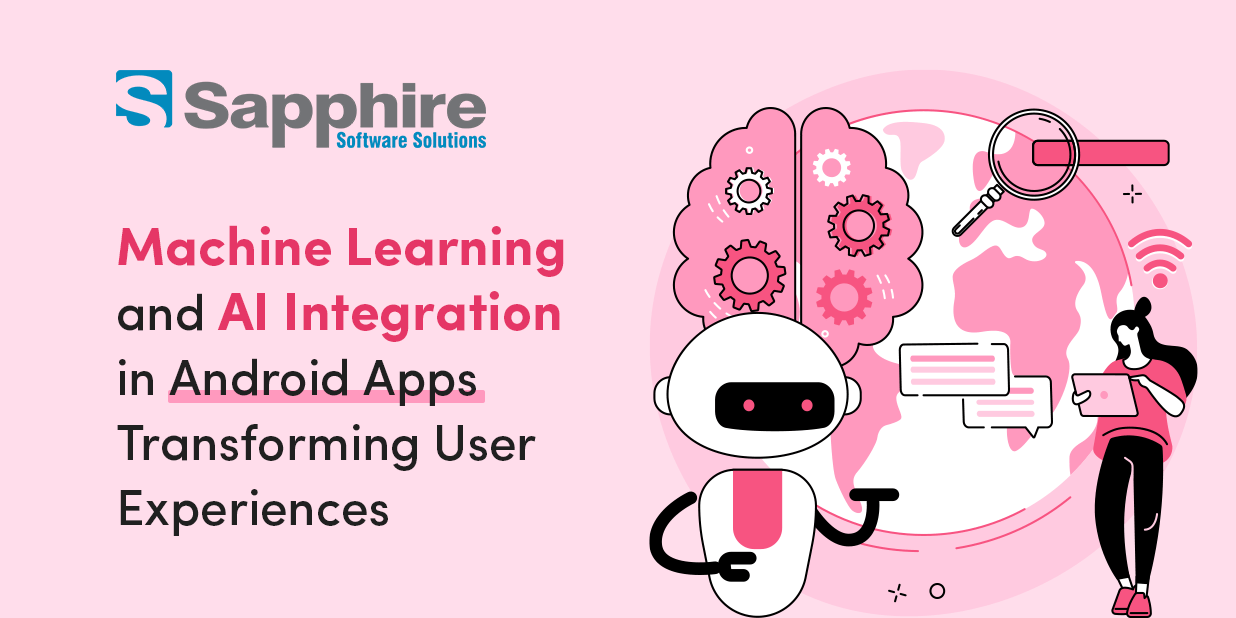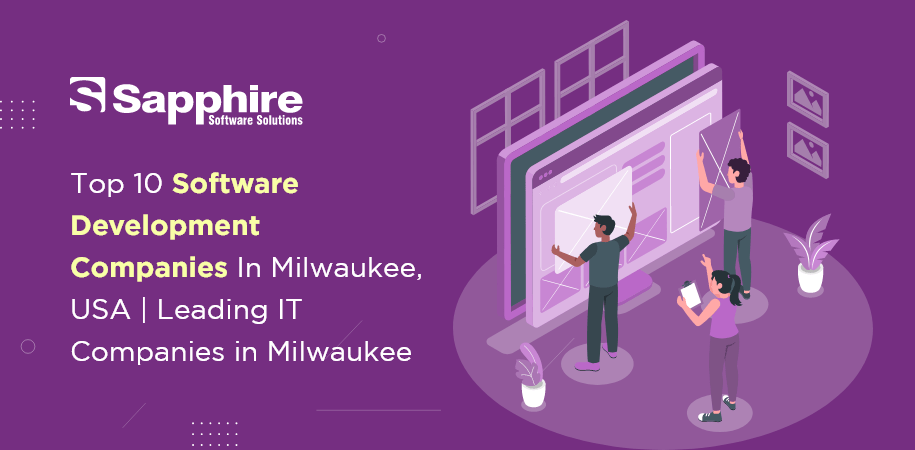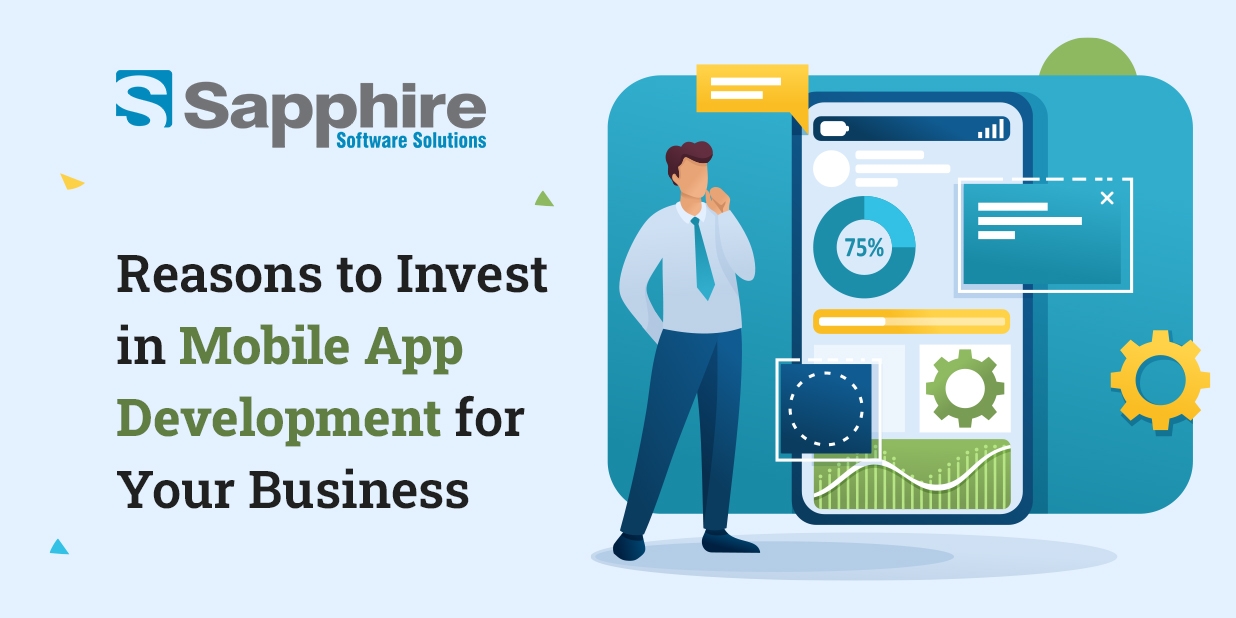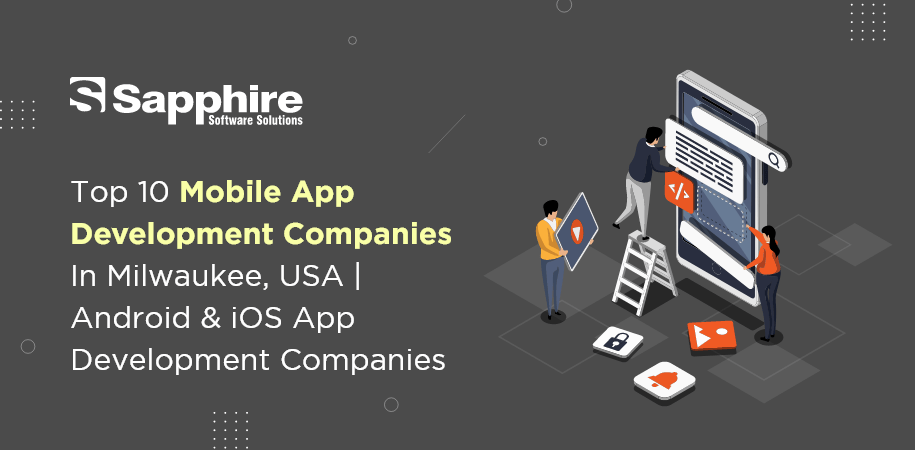The smartphone revolution has changed how people use technology and the world. Android, with its enormous user base, leads this transition. Android users’ expectations have changed in this digital age. They want more intelligent, more intuitive, and tailored experiences. Machine Learning (ML) and AI underpin this change. This blog explores how ML and AI in Android App Development Services change user experiences.
ML and Artificial Intelligence Development services can change how we use Android apps. Thus, we will discuss their pros, cons, and uses.
Power of Machine Learning and AI in Android Apps:
Machine Learning (ML) and AI have shaped Android applications’ functionality and user experience. Their integration allows applications to improve customization, prediction, security, and more. Let’s see how AI Machine Learning Mobile App can change user experience.
1. Personalization and Recommendations:
Personalization and suggestions are some of the most significant benefits of using ML and AI in Android applications. These technologies analyze user data, activity, and preferences to offer personalized information, goods, and services.
Netflix and Spotify utilize ML algorithms to examine users’ viewing and listening habits to provide suggestions. Amazon uses AI to propose goods based on customers’ browsing and purchase histories, improving the shopping experience.
Beyond content suggestions, personalization occurs. AI can customize app interfaces, settings, and features, improving the user experience. For instance, email software may tailor its UI to the user’s email management habits to simplify finding and managing messages.
2. Predictive Text and Voice Assistants:
Mobile typing has been dramatically enhanced by AI-powered predictive text input. The keyboard predicts the next word or phrase based on the user’s typing patterns, speeding up and improving text input. This technique dramatically improves email and message composition.
AI-powered voice assistants, including Google Assistant, Siri, and Alexa, are now part of Android applications. Voice-activated virtual assistants answer questions and do tasks. Voice assistants ease chores like setting reminders, sending messages, and giving directions.
3. Image and Speech Recognition:
AI-powered image and voice recognition are changing Android app use. Image recognition lets programs detect people, objects, and emotions from photographs and camera input. For instance, Google Lens can identify and describe items in real-time. This is useful in visual search, AR, and accessibility.
Speech recognition is also improving, allowing applications to translate speech into text or take voice instructions. For instance, Google Translate can instantly translate speech. Language translation, transcription, and voice-activated apps benefit from speech recognition, increasing user experiences for people of different skills and languages.
4. Enhanced Security:
AI-driven security features have made Android applications safer against data intrusions. Fingerprint and face recognition are commonly used for user verification. These solutions validate user identities and secure mobile devices and applications using AI algorithms.
Additionally, machine learning algorithms can recognize anomalous user activity patterns, enabling early identification of questionable actions. For instance, a banking app may employ AI to spot suspicious transactions based on customer spending trends. Security features have increased user confidence, encouraging the usage of safe Android applications.
5. Chatbots and Virtual Assistants:
Chatbots and virtual assistants have transformed Android app customer support and automation. Conversational AI systems can answer questions and help with transactions. Chatbots and virtual assistants improve user experience by answering questions and helping with online shopping 24/7.
E-commerce applications utilize chatbots to answer product queries and help consumers through the buying process. Virtual shopping assistants boost sales and engagement. Chatbots can instantly answer common customer support concerns, lowering wait times and enhancing satisfaction.
ML and AI in chatbots and virtual assistants may effectively perform repetitive activities and provide 24/7 availability, altering user experiences across domains.
Practical Applications of ML and AI in Android Apps:-
Health care:
Android applications have made substantial contributions to the healthcare business using ML and AI. Apps that track vital signs, medications, and diagnose illnesses are becoming more popular.
Finance:
Android applications with ML and AI capabilities are revolutionizing money management. AI helps budgeting applications like Mint and investing sites like Robinhood analyze expenditures and propose investments. Mobile banking applications are also safer with AI-driven fraud detection.
Gaming:
Machine learning and AI have changed mobile gaming with clever opponent AI, procedural content production, and adaptive gameplay. Pokémon GO uses AI for augmented reality, while Clash Royale uses machine learning to pair players with comparable skill levels for a balanced experience.
Education:
AI and ML integration has substantially enhanced Android education applications. Educational applications customize learning paths, react to student progress, and propose information.
Retail:
AI and ML are used in retail applications to provide tailored purchasing experiences. These technologies enable virtual try-ons, recommendation algorithms, and real-time inventory monitoring.
Challenges in Integrating ML and AI into Android Apps:
AI and Machine Learning have changed how we use Android apps. The benefits of integrating AI and ML are clear, but developers must overcome various obstacles to succeed.
Data Privacy and Security:
AI and ML models rely on collecting and analyzing user data for functioning. Protecting data privacy and security is challenging. Data protection laws and user privacy requirements are complicated for developers. Data management, storage, and consent are regulated under the GDPR and CCPA. Android app developers must preserve user data, anonymize it when appropriate, and disclose their data use. User confidence in data processing is crucial.
App Performance:
Implementing AI/ML models in Android applications might be resource-intensive. These resource demands might impair app speed, responsiveness, and battery life. Developers need help reconciling AI capabilities with app speed. To execute the program smoothly without using too many system resources, optimize algorithms, use efficient data structures, and minimize computational overhead. Failing to fix performance problems may frustrate users and lower app adoption.
Skill and Resource Requirements:
AI and ML model development, training, and maintenance need expertise. Developers must practice these abilities or work with specialists. AI model training requires plenty of computer power. Maintaining models with real-time data updates and enhancements requires resources. Given the tremendous demand for AI and ML expertise, many companies need help to hire a Machine learning or Artificial Intelligence Development company in USA.
User Trust and Transparency:
Users should understand how apps employ AI and ML. Transparency regarding data collection, processing, and use is essential. Building user trust is difficult, particularly in a data privacy-focused atmosphere. Developers must disclose their app’s data use, give explicit privacy rules, and let users opt in or out of AI-driven features. Misusing user data may cause trust erosion and user abandonment.
Model Interpretability:
Making AI and ML models interpretable is crucial. Users and stakeholders typically want to know how models create predictions. AI and Machine Learning App Development is crucial in healthcare and finance since model choices have far-reaching effects. Developers should invest in technologies that give insights into model decision-making to help end-users trust and accept them.
Conclusion:
Android applications using Machine Learning and AI are changing user experience. These technologies make applications more innovative, user-friendly, and entertaining, from tailored content suggestions to predictive text and virtual assistants. If you want to hire an Android App Development Company in USA, contact us today.
At Sapphire Software Solution, we develop on-demand and world-class mobile apps for different industries like healthcare, gaming, and other sectors. Apart from this, we manage data privacy, app performance, and user trust. You can also Hire Android App Developers for intelligent integration of AI and ML will alter user experiences in Android apps, paving the way for the next generation of mobile apps that meet users’ changing requirements and expectations. AI and ML in Android applications are only starting, and the future promises even more revolutionary experiences for consumers worldwide.

























